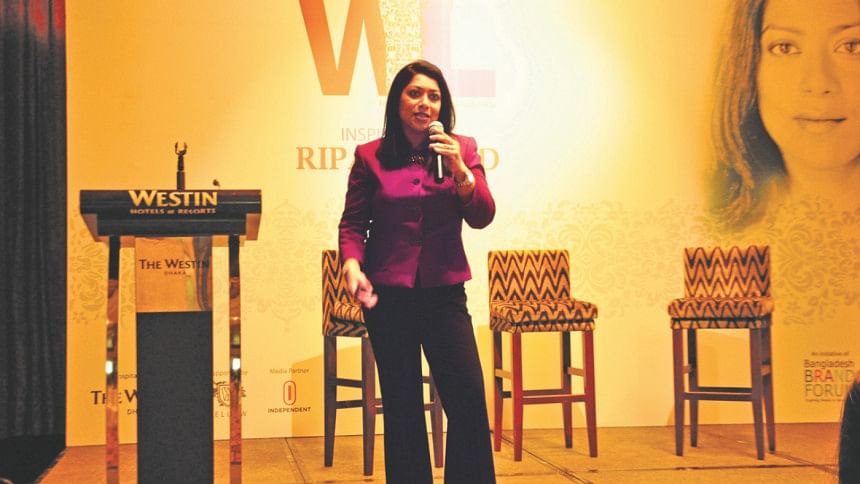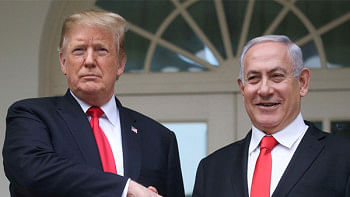Women in leadership: Inspired with Ripa Rashid

Where 49.5% of the population consists entirely of women in Bangladesh, the expected freedom and rights of women are rather non-existent. Women are subjected to frequent (if not constant) stereotypes, discrimination and harassment—especially in the workplace.
Women in Leadership (WIL) is a platform to help women in this difficult journey through mentoring, support and networking. Under the presidency of Nazia Andaleeb Preema, this project focusses on guiding professionals as well as university students, encouraging dialogues and sharing of ideas. Late in the afternoon on 22nd April, in collaboration with Bangladesh Brand Forum, WIL held a session with Ripa Rashid, Managing Partner at Hewlett Consulting Partners, New York.
In the session, she talked about her professional experience throughout the years and findings she had come across while she researched for the book Winning the War for Talent in Emerging Markets: Why Women are the Solution, which she co-authored with Sylvia Ann Hewlett, a renowned economist and gender expert. Working together, they both researched on women in the BRIC countries, realising that the problems that women face are universal. In the book, she talks about how the problems that women encounter in the developing nations are different from those in the West.
Ms. Rashid pointed out that despite the improved access to educational opportunities for women, there is an "achievement gap" between men and women, especially after graduation. In her research, she came to the conclusion that this gap was not because they were not ambitious enough—in fact the women from the emerging markets were more ambitious than the ones in USA. She stated that this drive and commitment comes from the fact that women feel they are their true selves at work, recognised based on their merits and this process of self-actualisation leads them to be more committed. It is a respite from the household and family duties, which make them enjoy work instead of looking at it as "work".
However, a woman's career faces various obstacles. Childbirth and caring for the elderly force women to make difficult choices between their career and family, often having to let go of promotions for the sake of giving more time to their families. Choosing career over family leads to severe criticism and post-decision guilt, but many feel that family and social commitments are rather duties they are willing to invest in. As a result, women feel the need to fulfill multiple roles in their family and the workplace. "It provides a broader range of rewards for us to aspire to," Ms. Rashid stated. She also pointed out another interesting fact—the women of emerging economies tend to earn more than their husbands, although the problem of unequal pay at the workplace persists.
Ms. Rashid went on to talk about the push factors from the workplace and the environment that make it difficult for a woman to balance career and family. Late or inappropriate corporate hours, commuting and transportation safety, and workplace biases and stereotypes were the major areas she focussed on. A research showed that the number of men agreeing to the presence of workplace gender bias were higher than the number of women. "Women leadership roles are also difficult to fulfill because they are judged based on male executive models, measured against a standard that doesn't apply for us", Ms. Rashid said.
After covering the challenges, she moved on to the various solutions that many multinationals have adopted in order to empower the female workforce, such as exposure to professional networks that help build a community of female leaders to share ideas. Training on executive development programs and sponsor connecting programs are also solutions that are critical to empowerment and sustaining ambition.
Following the session was an engaging Q&A session where many interesting views and questions emerged. One particular question was regarding unequal pay, to which Ms. Rashid replied that although slight changes have been taking place, gender inequality still remains a major issue. However, she pointed out that more often than not women underestimate themselves, not asking for promotions or raises. Negotiation of salaries often helps solve this problem, but an overall transparency in organisations help slim down the wage gap.
This session was an amazing experience for myself—not just because of how engaging and easily approachable Ms. Rashid was—but also because it was an honour and privilege to be surrounded by so many women exuding strength, leadership, intellect and of course, beauty.

 For all latest news, follow The Daily Star's Google News channel.
For all latest news, follow The Daily Star's Google News channel. 



Comments